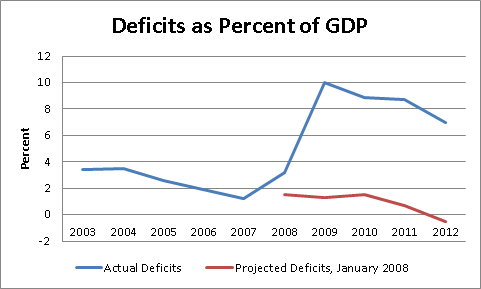November 12, 2012
The Washington Post is throwing all journalistic norms aside in its drive to cut Social Security and Medicare. It continues to hype the budget standoff as an ominous “fiscal cliff” and tells readers on the front page of its web site that it could provide a “magic moment” in which Social Security and Medicare can be cut. The piece begins by telling readers:
“Two years ago this month, the leaders of a presidential commission rolled out a startling plan to dig the nation out of debt. After decades of stagnating incomes, they said, Washington must tell people to work longer, pay higher taxes and expect less in retirement.”
Okay I tricked you, this is the Washington Post which doesn’t acknowledge economic realities like stagnating income. The piece actually began:
“Two years ago this month, the leaders of a presidential commission rolled out a startling plan to dig the nation out of debt. After decades of profligacy, they said, Washington must tell people to work longer, pay higher taxes and expect less in retirement (emphasis added).”
This departure from reality gives you the gist of the story. The piece continues:
“Lawmakers recoiled from the blunt prescriptions of Democrat Erskine Bowles and Republican Alan K. Simpson. But their plan has since been heralded by both parties as a model of clear-eyed sacrifice, and policymakers say the moment has come to live up to its promise.”
Well, yes people have praised their plan. They have also ridiculed it. For example it proposes immediate cuts in Social Security benefits that would be a larger share of the income of the typical beneficiary than President Obama’s proposed tax increases on the top 2 percent would be for most of the affected taxpayers. It also proposes increasing the age for Medicare eligibility, even though this would add tens of billions to the country’s health care costs over the next decade. And, it proposed a minimum Social Security benefit for low wage earners that few low wage earners would actually qualify for due to the number of working years required to qualify.
There were many other carefully detailed criticisms from people who did not find the plan “startling” nor saw the need to “dig the nation” out of a debt that was almost entirely due to the economic plunge caused by the collapse of the housing bubble. As all budget wonks know the deficits were just over 1.0 percent of GDP prior to the economic collapse and were projected to stay low for the near future, until the collapse of the housing bubble sank the economy.
 Source: Congressional Budget Office.
Source: Congressional Budget Office.
These people focused on the need to get the economy going again and to get people back to work, which would eliminate the bulk of the deficit all by itself. But, just as the Post ignored all the people warning of the housing bubble before it burst, it continues to ignore those who try to put the large budget deficits in the economic context in which they arose.
The piece continues to shamelessly push its agenda:
“In the past, policymakers have handled such moments by delaying the pain and giving themselves new deadlines for getting the budget under control. Now, however, the national debt is larger, as a percentage of the economy, than at any time in U.S. history except for the period after World War II — and it’s rising rapidly. Avoiding hard decisions could have grave consequences, analysts say, potentially undermining the U.S. economic recovery and the world’s confidence in American leadership.”
A more serious newspaper might point out that the ratio of interest payments to GDP is near a post-war low.

Source: Congressional Budget Office.
The piece includes the Post’s usual collection of terms and phrases that would ordinarily be reserved for the opinion pages of a newspaper; for example telling us that a budget deal was “tantalizingly” close back in 2011 and telling us about efforts at “taming” the debt, as opposed to reducing it. And it tries to conceal plans to cut Social Security benefits, referring to Republican demands for:
“applying a stingier measure of inflation to Social Security.”
It is unlikely that most readers would understand that this would mean reducing benefits for current retirees by 0.3 percent annually from scheduled levels. This would accumulate to a cut of 3 percent for someone who had been retired 10 years, 6 percent after 20 years and 9 percent after 30 years.
Anyhow, we will no doubt see many more pieces pushing the Post agenda for cutting Social Security and Medicare littered throughout the paper’s news section in the weeks ahead.







Comments